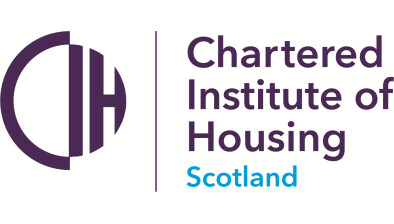Edinburgh agrees new powers to regulate short term lets

The licencing scheme will allow the council to restrict tenements and shared door properties being used
The City of Edinburgh Council’s Regulatory Committee has agreed a new licensing scheme which includes additional controls for short-term lets for properties used as secondary letting within a tenement or shared main door property.
The licencing scheme will allow the authority to restrict tenements and shared door properties being used, and ensure that correct planning permission and safety checks are in place.
The local authority said yesterday’s decision follows extensive consultation to adopt new regulatory powers to tackle issues of antisocial behaviour and safety caused by the rise of short-term lets in the capital.
Earlier this year, the Scottish Parliament approved legislation to introduce a new licensing scheme on 1 October, which the council led the campaign for, to help minimise the impact these issues are having on local communities.
Other mandatory conditions in the scheme include fire, gas, electric and water safety checks, maximum occupancy levels being set as well as making sure the applicant has the right planning permission in place for their property.
For those letting a room or rooms within their own home temporary licences will be available giving first-time hosts the flexibility and opportunity to try out short-term letting before a full licence application is made. When there is a lot of pressure on accommodation in the city such as during the summer festivals and major sporting events the Committee also agreed that temporary exemptions can be made for all short-term lets for up to six weeks in any 12-month period.
These new powers are in addition to new planning legislation which allowed Edinburgh to become the first short-term let control area in Scotland last month. This means that the change of use of an entire dwelling, that is not someone’s principal home, to a short-term let will require planning permission. This does not apply to home sharing or home letting.
Councillor Neil Ross, Regulatory convener, said: “We’ve campaigned for years for these new powers and (yesterday’s) decision to implement the new licensing system in the capital is great news for our local communities as well as the visitors who come to Edinburgh each year.
“Around a third of all short term lets are here in Edinburgh and the new licensing scheme will give us greater control over where short term lets are situated. Issues of safety and anti-social behaviour have been having a detrimental effect on our residents so I’m pleased to see the new scheme will make sure licence holders meet the right safety requirements and occupancy levels and that they will have to obtain the correct planning permission as a condition of their licence.
“I’m pleased that as well as introducing the conditions set by the Scottish Government, we’ve had the flexibility under the new legislation to introduce our own conditions too. Concerns around the management of secondary letting came up time and again during our consultations and we’ve recognised that in Edinburgh unless there’s a good reason for an exemption applicants won’t be given a licence in tenements and shared door properties.”
The Association of Scotland’s Self-Caterers said the decision is “a hammer blow” for Edinburgh’s tourism industry.
Fiona Campbell, chief executive, added: “We are extremely disappointed that business and tourism stakeholder group warnings have once again been overlooked, jeopardising the £70m economic boost self-catering provides to Edinburgh, as well as the hundreds of jobs and livelihoods this supports.
“What has been agreed amounts to nothing less than a de-facto ban on secondary letting and we note the council’s recognition that aspects of their policy carry significant legal risk. This is despite the fact that self-catering properties have been a long-standing presence in the capital for decades and should not therefore be used as a convenient scapegoat for policy failures elsewhere.
“There are also wider implications for Edinburgh, including for the future viability of the Festivals. We are presuming that the rebuttable presumption against the grant of a licence in stairwells, means that no home in a stairwell will be granted a temporary exemption either, in which case the Edinburgh Festival 2023 is in considerable trouble indeed.”






